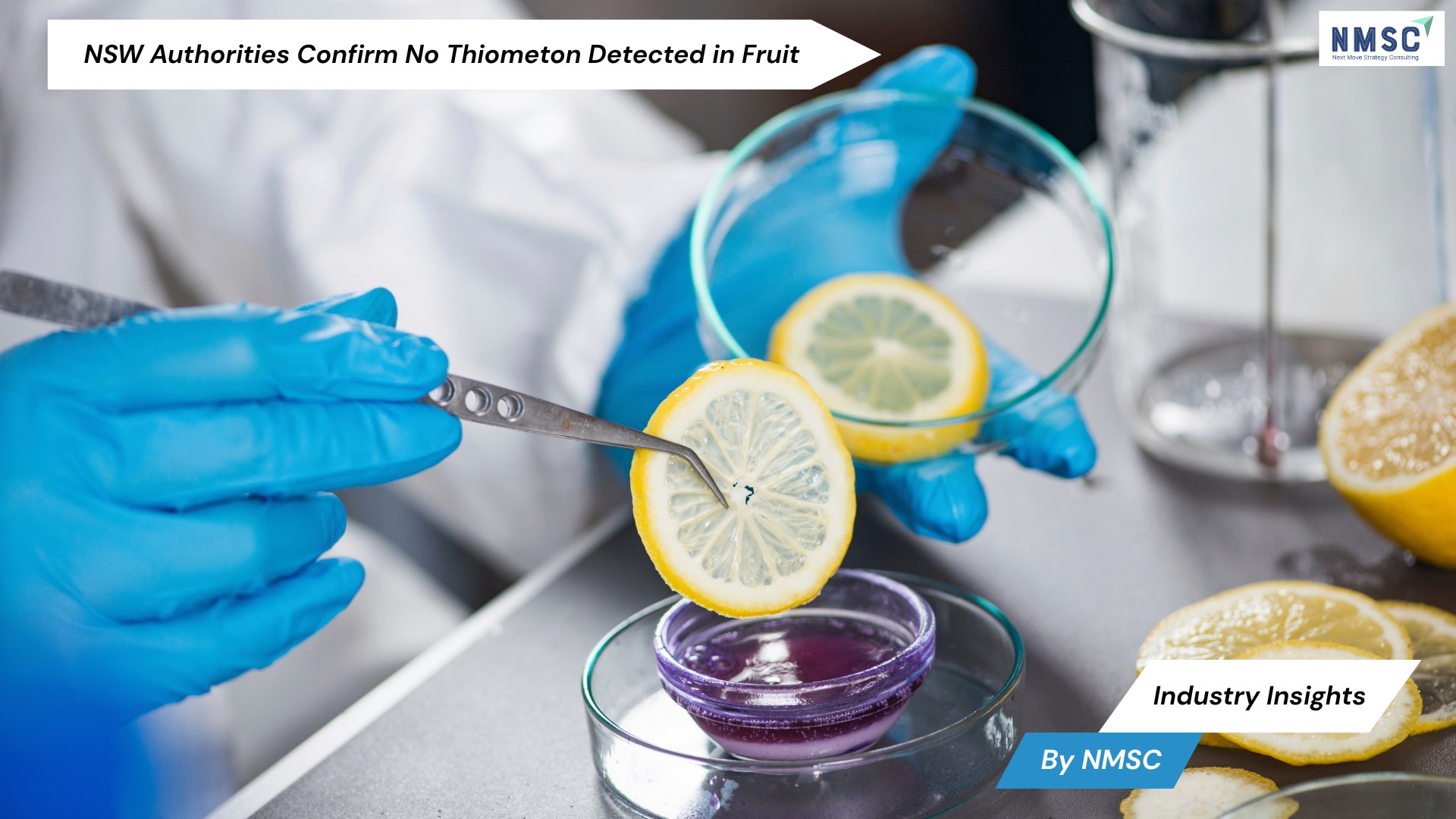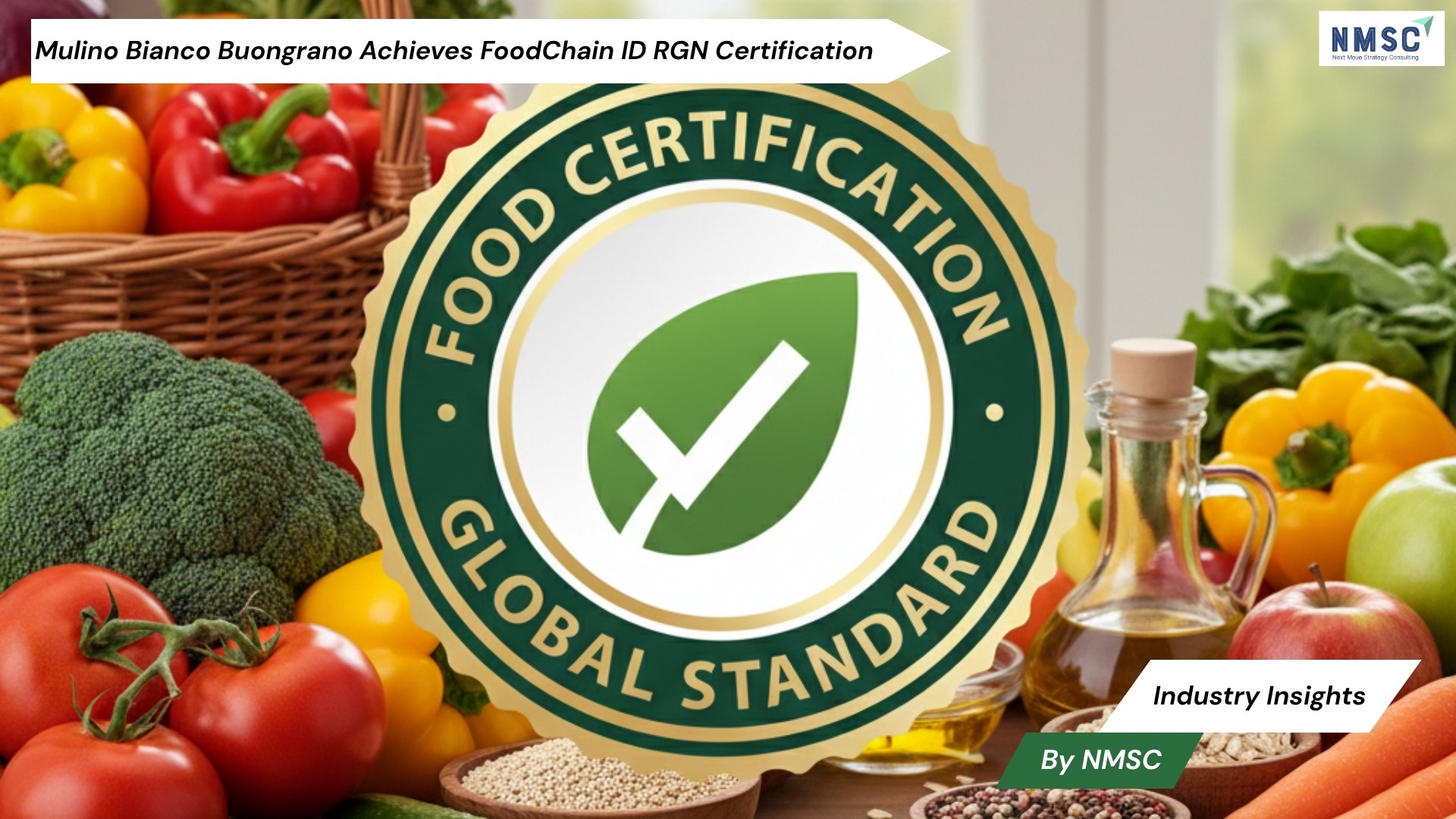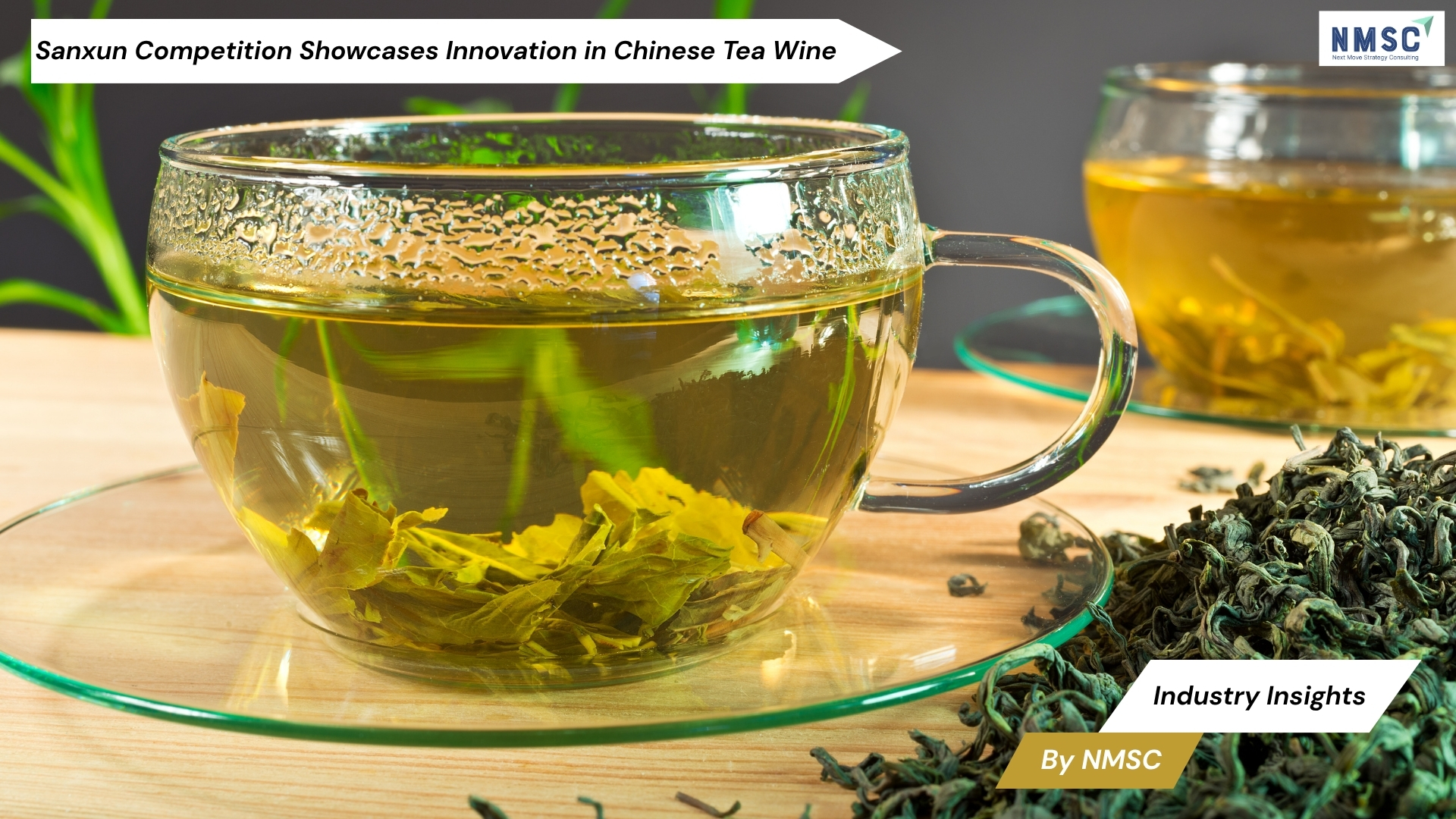NSW Authorities Confirm No Thiometon Detected in Fruit
Published: 2025-10-03

Industry Insights from Next Move Strategy Consulting
In a critical update for Australia’s food safety framework, the New South Wales (NSW) Environment Protection Authority (EPA) and NSW Food Authority have confirmed that blueberries are free from the banned insecticide thiometon, countering earlier concerns raised in 2024. This development, backed by rigorous testing, underscores a proactive commitment to maintaining consumer trust in one of Australia’s fastest-growing fruit markets.
Resolving Thiometon Contamination Concerns
In 2024, Dr. Kirsten Benkendorff of Southern Cross University in Coffs Harbour reported detecting thiometon-an insecticide prohibited since 1995 due to its toxicity-in blueberry samples from local supermarkets. The findings sparked concern given thiometon’s potential health risks. However, the NSW EPA and Food Authority have refuted these claims with robust evidence.
“Testing conducted by industry provider FreshTest during October and November 2024 revealed no thiometon residues in any berry samples,” the agencies stated in a joint release. They further noted that a review of Benkendorff’s research found its methodology unaccredited for fresh produce like berries, rendering the results unreliable.
Benkendorff suggested that the detected thiometon may have resulted from contamination in other horticultural products or sprays. She highlighted her use of a “low-level detection pesticide suite” at a nationally accredited laboratory, capable of identifying 157 environmental contaminants, including thiometon, at levels 100 times lower than standard supermarket tests.
Regulatory Response to Dimethoate Findings
Benkendorff’s research also flagged elevated dimethoate levels in some blueberry samples. Although within legal limits, these levels raised concerns, as consuming a standard 125g punnet could exceed the acceptable daily intake (ADI) for both children and adults. Dimethoate, an organophosphate pesticide banned in the EU in 2019 due to risks like neurological issues and skin irritation, prompted swift regulatory action.
The Australian Pesticides and Veterinary Medicines Authority (APVMA) extended the pre-harvest interval for dimethoate on berries to 14 days, up from one day for blueberries and seven days for raspberries and blackberries. This change aligns with updated data showing a dramatic rise in berry consumption, with a 2023 Food Standards Australia and New Zealand (FSANZ) survey, reported in 2024, indicating a 285–962% increase over outdated 30-year-old consumption figures.
Impact on the Food Safety Testing Market: Next Move Strategy Consulting’s View
The thiometon and dimethoate concerns highlight the growing importance of advanced food safety testing. With berry consumption surging, the food safety testing market is seeing increased demand for high-sensitivity detection technologies and standardized protocols. This incident emphasizes the need for accredited, reliable testing to address unregistered contaminants and adapt to shifting consumption trends. The market is poised for growth, with investments in cutting-edge detection systems driving innovation and regulatory alignment to protect public health.
Bolstering Trust in Australia’s Berry Industry
The rapid response from NSW authorities and the APVMA demonstrates a commitment to food safety and consumer confidence. By debunking unreliable thiometon claims and tightening dimethoate regulations, regulators are ensuring that safety standards keep pace with Australia’s growing appetite for berries. The absence of thiometon and updated pesticide controls reinforce the integrity of the berry supply chain.
As berry consumption continues to climb, this episode underscores the critical role of accredited testing in upholding safety standards. Ongoing regulatory reviews and enhanced testing frameworks position the industry to meet consumer demands while mitigating risks.
A Stronger Foundation for Food Safety
The resolution of the thiometon issue and the proactive adjustments to dimethoate regulations mark a defining moment for Australia’s food safety landscape. Through advanced testing and responsive governance, NSW authorities are setting a standard for transparency and accountability, ensuring that consumers can enjoy blueberries and other berries with confidence.
Source: The Guardian
Prepared by: Next Move Strategy Consulting
About the Author
 Nitrishna Sonowal is a skilled SEO Executive and Content Writer with over 3 years of experience in the digital marketing industry. With a deep understanding of the ever-evolving digital landscape, she blends analytical insights with creative storytelling to deliver impactful digital solutions. She creates content that resonates with both clients and readers alike. Outside of work, she enjoys dancing, baking, and travelling to new places.
Nitrishna Sonowal is a skilled SEO Executive and Content Writer with over 3 years of experience in the digital marketing industry. With a deep understanding of the ever-evolving digital landscape, she blends analytical insights with creative storytelling to deliver impactful digital solutions. She creates content that resonates with both clients and readers alike. Outside of work, she enjoys dancing, baking, and travelling to new places.
About the Reviewer
 Sanyukta Deb is a skilled Content Writer and Digital Marketing Team Leader, specializing in online visibility strategies and data-driven campaigns. She excels at creating audience-focused content that boosts brand presence and engagement, while also pursuing creative projects and design interests
Sanyukta Deb is a skilled Content Writer and Digital Marketing Team Leader, specializing in online visibility strategies and data-driven campaigns. She excels at creating audience-focused content that boosts brand presence and engagement, while also pursuing creative projects and design interests
















Add Comment